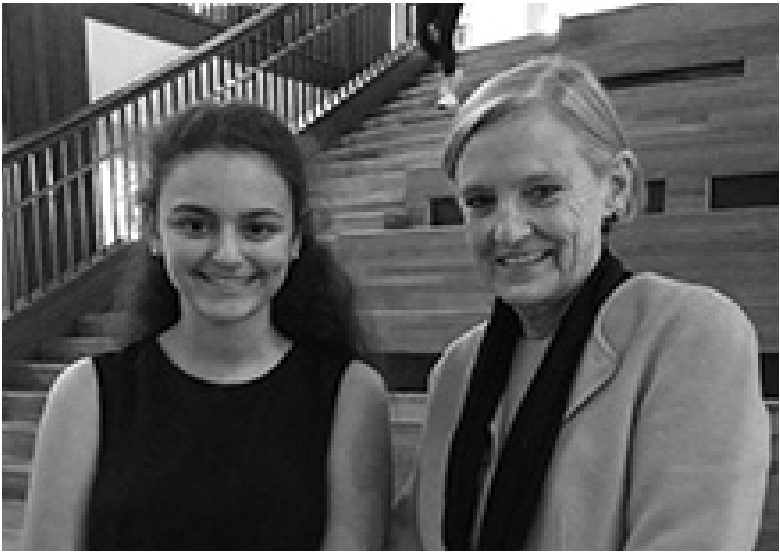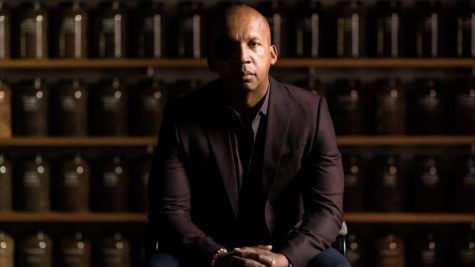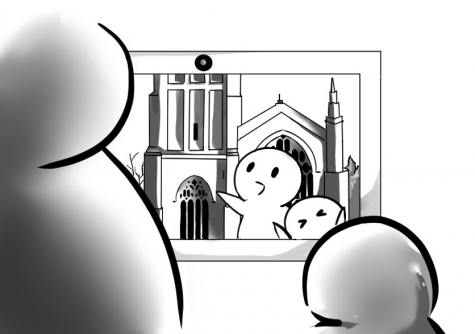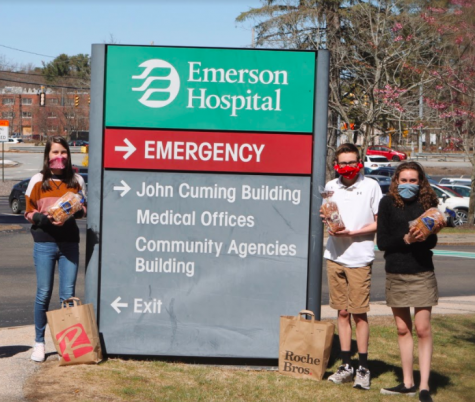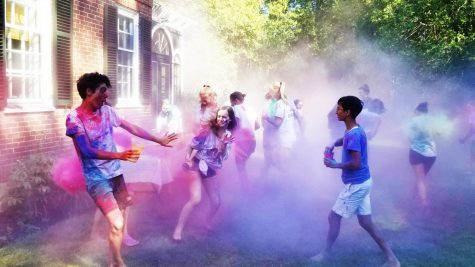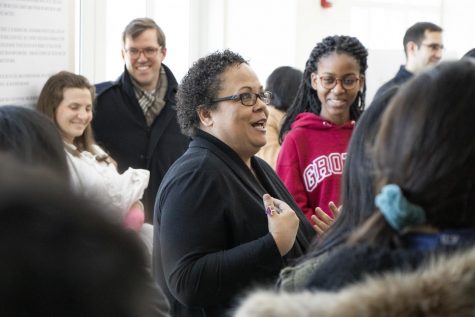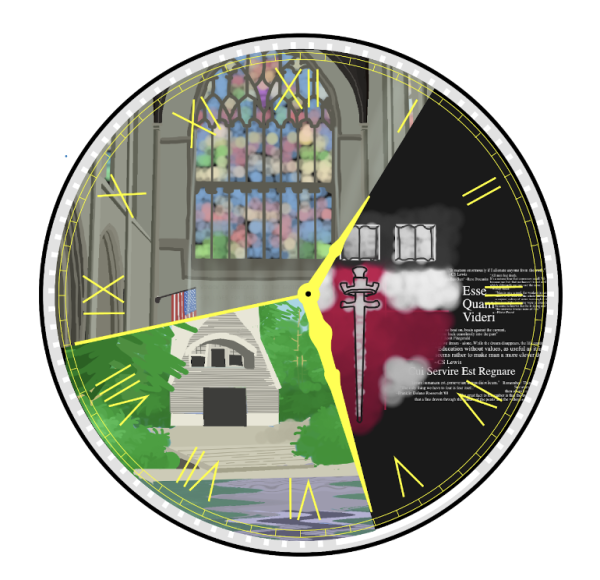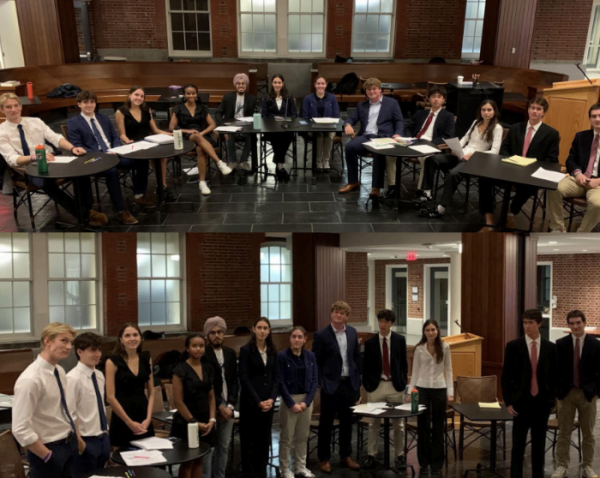Understanding the Middle East
President of American University of Cairo and Middle East expert Lisa Anderson (right), invited by Victoria Wabha ’17 (left), speaks on the Circle.
In the first week of October, Victoria Wahba ‘17 sent out an all-school email inviting students and faculty to come to the Forum to hear “the President of the American University of Cairo . . . speak about Democracy in the Middle East.”
On Thursday, October 8, Lisa Anderson—former dean of international and political affairs at Columbia University—spoke about “the [situations] in Libya [and] Syria, and Islamic extremism on the whole,” answering questions with the goal of educating the Groton community about the current political standings in the Middle East.
Last spring, Wahba began this series of lectures—titled Understanding the Middle East—with the plan of “bringing a couple speakers a year of all different backgrounds to talk about relevant issues.” This series hits close to home, touching on “Middle Eastern issues which [are] so prevalent in [Wahba’s] life.”
Previous lecturers include Hania Sholkamy, professor of anthropology at the American University of Cairo, and Jennifer Cate, executive director of Hands Along the Nile, a non-profit dedicated to improving understanding between America and the Middle East. Wahba recalls that both “spoke about women in the Egyptian Revolution.”
The idea for the project occurred to Wahba when she first came to Groton and noticed the striking contrast between how “everyone here was so eager to learn” and yet “there was [not] a lot of talk about Middle Eastern issues.”
While “[the] process for inviting [speakers] is really quite random,” the rewards of support and high turnouts do not come easily.
“The hardest part,” Wahba explains, “[is] organization. Coordinating transportation and times with the school [has] actually [been] a lot harder than getting the speakers,” some of whom she has worked with in the past, giving her “a good connection and background on” the type of talk they’d give. Wahba has “come up with ideas for people,” and “[her] advisor and parents” have supported her in “[bringing] these speakers [to campus].”
President Anderson’s talk, “a detailed summary of the history of the Middle East and how it came to” its current political situation, filled up the Forum steps with students interested in expanding their knowledge of current events.
Wahba “[hopes] students take away a better understanding” of the Middle East and “how it applies to our world today.”
“Along with perspective,” Wahba says, “[she thinks she] really wanted to bring a little bit of the Middle East with [her] to Groton since it is so easy for [that part of her identity] to fall under the radar here.”


